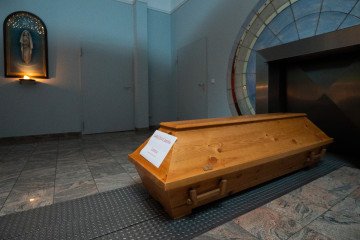- Category
- Latest news
A Ukrainian Marine’s Return from the Horrors of Russian Captivity and His Long Journey Home
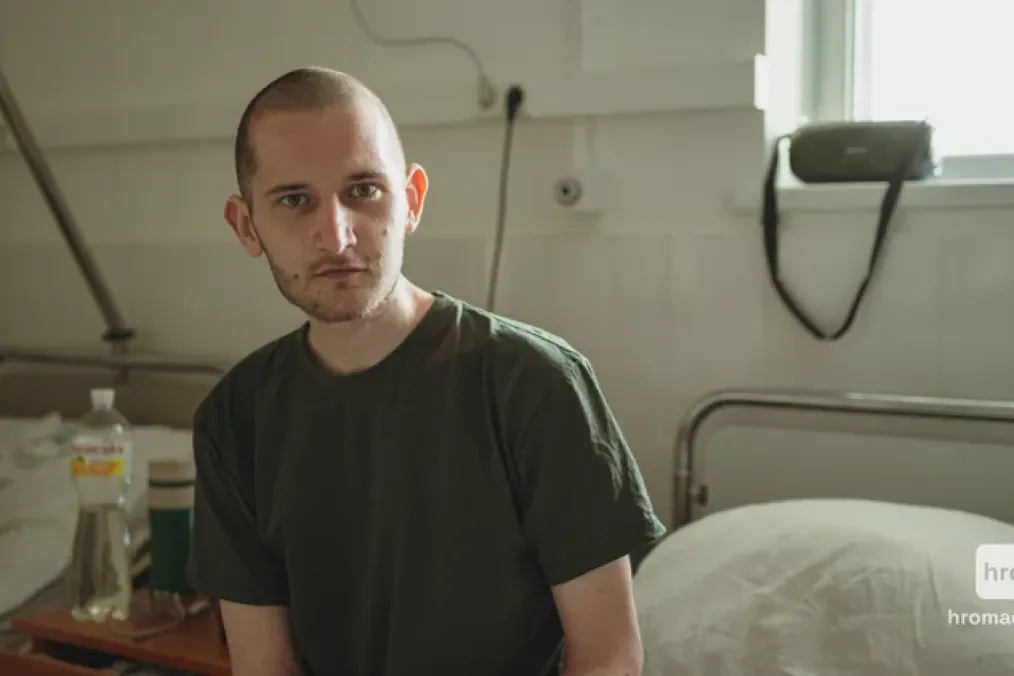
As Russia’s war on Ukraine continues, the tales of those affected reveal the harsh realities of Russian captivity. This is the story of Yurii Hulchuk, a Ukrainian marine held in Russian captivity since the siege of Mariupol, and his journey home.
UNITED24 Media has translated a recent report from hromadske, an independent Ukrainian media, about Ukrainian marine Yurii Hulchuk, who was captured during the Russian siege of Mariupol in 2022 and has been held in captivity ever since. Hulchuk endured physical and mental torture and other severe violations of the Geneva Convention from Russian forces.
His mother shared the difficult journey to bring him home and described his ongoing rehabilitation after months of torture. While in Russian captivity, Hulchuk was forced to stand for 16 hours a day, starved, and beaten when he did not follow orders. As a result of the abuse, he returned home unable to eat or speak independently. It took three days for him to recognize his own mother.
The translation below by UNITED24 Media follows hromadske’s text in full and remains unedited.
---
Do you remember the video from the last prisoner exchange: a mother hugs her son, and he looks through her with eerily empty eyes and does not react to her words or touch?
Yurii Hulchuk, a marine from the Ukrainian 36th Brigade, spent nearly two and a half years in Russian captivity. Immediately after his exchange, he was rushed to the intensive care unit of a Kyiv hospital. He couldn’t eat or speak on his own and was unresponsive to everything around him.
Ukrainian marine Yurii Hulchuk was captured by Russians in April 2022 and endured brutal torture. Yurii lost his ability to speak or show emotion.
— UNITED24 Media (@United24media) September 22, 2024
In a video, his mother hugs him after his release in a prisoner exchange. pic.twitter.com/8A5BQfpU17
Later, he told his mother that it felt like his soul was separated from his body, as if he were watching through glass, seeing his hands lying next to a plate with food but unable to move them.
"It took him three days to recognize my face and voice. On the fourth day, there was an emotional recognition—he cried and clung to me like a child to its mother. On that morning, a psychiatrist said that Yurii would need at least a year in a psychiatric hospital to start talking. But Yurii started speaking just seven hours later, and his recovery was rapid," recalls Milana, Yurii's mother.
I visited Yurii on the seventh day after the exchange. Not only was he talking, but he was speaking eloquently, like a linguistics student.
There were many questions Yurii didn’t want to answer. He also firmly stopped his mother from delving too deeply into his soul. It wasn’t the right time. He was just beginning feel the warmth and love after enduring Russian hatred and cold.
Milana organized protests, press conferences, stormed the Ukrainian Parliament and the Ministry of Veterans Affairs to secure her son’s release, even when her closest relatives said, "You're chasing ghosts. Stop. You have three other children to think about."
Now, Yurii is safe, and the Ministry of Veterans Affairs has offered Milana a job, recognizing her experience in locating prisoners and aiding their rehabilitation.
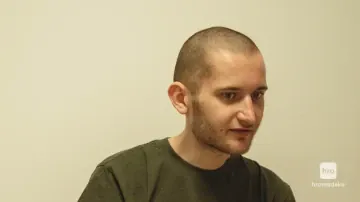
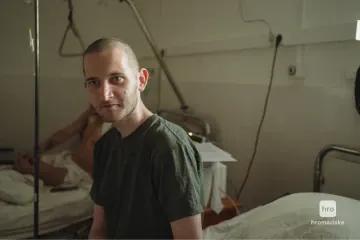
Yurii’s father is a programmer, his mother is a rehabilitation specialist. Yurii himself had been studying Chinese at Kyiv National Linguistic University. After his second year, he decided to serve his mandatory military service.
He joined the marines in the fall of 2021. Two weeks before the Russian full-scale invasion began, he signed a contract with his brigade. What followed was service in Mariupol, battles at the Illich Steel Plant, and Russian captivity.
Milana first saw Yurii’s name listed as a prisoner on a Russian website on April 18, 2022. Soon after learning that soldiers from the 36th Brigade were being held at the Olenivka prison camp, a terrorist attack there claimed the lives of over 50 Ukrainian prisoners of war.
Through Russian contacts, Milana confirmed that her son was not among the dead or injured. But was he even in Olenivka? It wasn't clear until December 2022 that she was able to confirm his location: Detention Center No. 2 in Ryazhsk, Ryazan region.
"I found a photo of Yurii on a Russian website. His face looked just like when he was a child—hurt. I knew he'd been through a lot. One detail stood out: his hands were filthy. In his pre-war life, I couldn’t imagine him with dirty hands," Milana shares.
The photo had a green background. Milana connected with relatives of other prisoners photographed with the same background, and together they determined that the pictures had been taken in Ryazhsk. But were they all there?
In January 2023, a Russian news channel published a video featuring Yurii and other prisoners. From this, Milana was able to confirm that Yurii was indeed in Ryazhsk. But two weeks later, she received word that he and other prisoners had been moved to an unknown location.
On January 31, 2024, a man released from captivity told Milana that he had shared a prison cell with Yurii. However, he didn’t know where the prison was, only mentioning something about a place called "Polyana."
"From Ryazhsk, they were transported by bus for a specific amount of time. We calculated how far the bus could travel in that time and drew a radius on the map. One of the locations within that range was a colony in the village of Udarnoe in Mordovia's Zubovo-Polyansky district. That’s when I realized 'Polyana' referred to that place. My son was there," Milana recalls.
According to Milana, in the video from Ryazhsk, Yurii appeared and held himself with dignity: "He didn’t cry or stutter. He calmly identified himself and his brigade number. He said, 'I serve in the 36th Brigade,' not 'I served,' and I liked that. He seemed in a stable condition, which gave me peace for a while."
Milana learned more about Yurii's life in captivity a year after seeing that video. Mykola, also released from Russian captivity revealed that Yurii never fought over food, never squealed, and helped other sick prisoners. Initially, Yurii refused to follow the guards' orders and was beaten for it. Eventually, he chose a different form of resistance—silence. The guards couldn’t get anything out of him. However, a few months later, one of the prisoners betrayed him, revealing that Yurii was secretly speaking with his fellow prisoners. After that, the guards did something to him that left him truly unable to speak. It happened in June 2023.
Milana was horrified by what Mykola told her: "He described sophisticated physical abuse—beatings, standing for 16 hours a day until ulcers formed on their legs. The Russians would first hit you to form a bruise, then hit the same spot until the wound became infected."
Milana noticed how Yurii now drinks boiling hot tea: "He drinks boiling water because in captivity, they forced them to eat scorching hot food in under two minutes. When I asked him about it, he winced and said, 'I don’t want to talk about food.'"
Reflecting on the abuse, Milana confessed that she almost regrets learning these details about her son's captivity. How will she live with that knowledge?
"I cried the whole way home. At home, I screamed and hit the walls. My child faced such evil!" she recalls.
On Yurii’s first day speaking again in Kyiv, he shared that what bothered him most in captivity was watching some brothers-in-arms lose their humanity. He said that his mother’s words from childhood, "Never steal, never squeal on others, never be cruel," for helping him get through it.
Another challenge was the total disorientation in time and space.
"I didn’t know where I was or what would happen to me in the next minute. What about my parents? What about my country? Sometimes I thought the war might end, and we wouldn’t know, or that World War III started, and we weren’t told. It’s very hard to track time in there. Every day feels the same. I’m not even sure the days I thought were my birthday were really the right dates. But I tried to stay strong," Yurii shares.
"How did you manage to control your emotions and thoughts in such a situation?" hromadske correspondent asked.
"Maybe situations like that teach you how to control yourself," he replied.
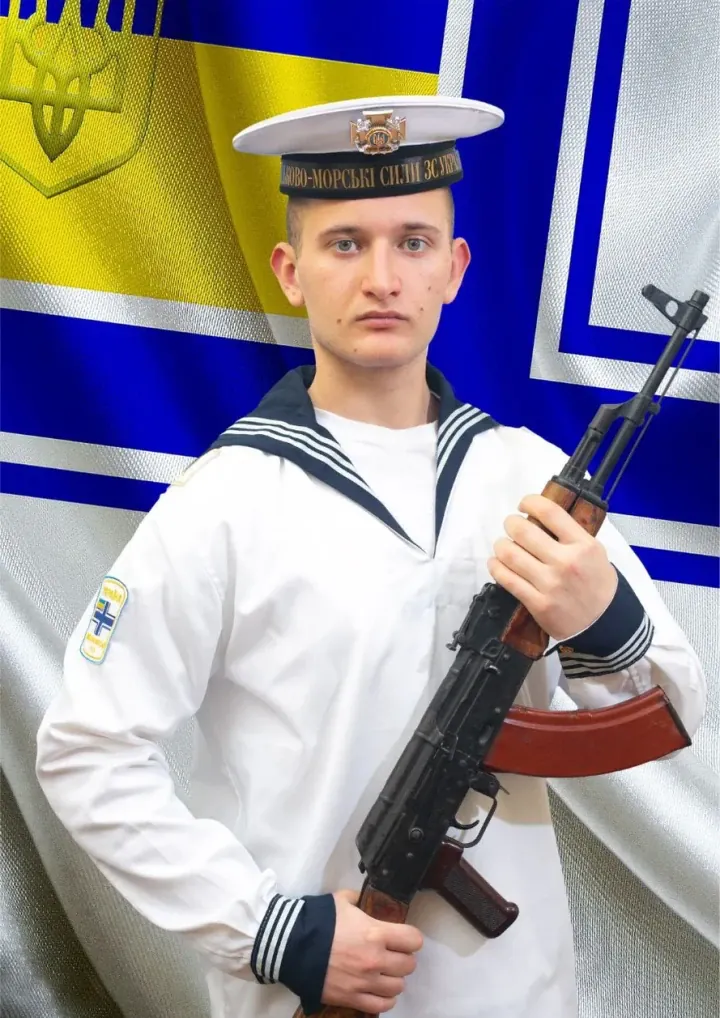
Yurii confessed that his primary emotion in captivity was regret—regret that he hadn’t spent more time with his family. "My grandparents lived so close, but I rarely found time to visit them," he said.
In April 2022, Milana filed a missing person report, submitted a DNA sample, contacted the Ukrainian Coordination Headquarters for the Treatment of Prisoners of War and the International Red Cross, even wrote to the UN Working Group on Enforced or Involuntary Disappearances.
"I was waiting for any information about my son from official channels, but they had nothing to tell me. The final straw was a meeting with the leadership of the 36th Brigade in June 2024. A psychologist, a financial officer, and a social worker showed up—but no word about when Yurii and the others might be exchanged. Mykola, man who shared a prison cell with her son, told me that Yurii was holding on by sheer willpower, and I knew he couldn’t hold on much longer," Milana says.
Milana appealed to both the Ukrainian and Russian ombudsmen, asking for a humanitarian corridor for the severely ill prisoners from the 36th Brigade, but she was ignored. She then proposed Ukrainian Parliament to introduce the concept of a "long-term prisoner," explaining that these individuals suffer the most severe trauma.
"A long-term prisoner is someone held for more than two years. Starvation during that time leads to severe dystrophy, which eventually results in prisoner’s death. And our prisoners are not only starving but also being beaten and forced to stand all day, with lymph constantly oozing from the wounds on their swollen legs! I wrote about this to Ukrainian Parliament, the Ministry of Veterans Affairs, and the Coordination Headquarters. Then I turned to the Ukrainian Media Initiative for Human Rights," Milana recounts.
The Media Initiative helped her organize a press conference and a protest outside the Ukrainian Parliament.
"From June 20 this year, I spent 6-7 hours a day at the protest. It was a hot summer, and I suffered two heat strokes, but after resting, I went to protest again. Sometimes, relatives of other prisoners from the 36th Brigade joined me, and our group grew to 100 people at times. We printed photos of those who had died in captivity as well as the wounds and bruises our soldiers had when they returned home.
At first, no one paid attention to us, but eventually, I was invited to a meeting with the Ukrainian Parliament’s National Security, Defense, and Intelligence Committee. Later, I submitted my proposals to a temporary investigative commission. After that, many of the prisoners whose relatives supported my protest were released," Milana shares.
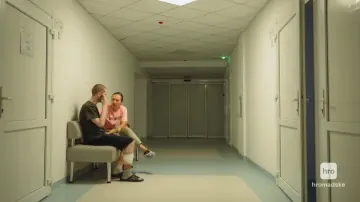
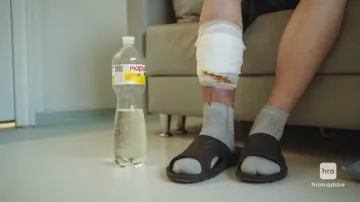
On September 14, she was told to go to Chernihiv, where Yurii and other prisoners would be brought from Russia. The person who called said they would never forget the moment Milana screamed in joy.
Those who thought Milana was chasing ghosts had to apologize.
"Before captivity, my parents and I often went for walks or to cafes. Those are memories from my childhood, full of warmth and light—my dad’s mentoring, my mom’s care. I often imagined us sitting in a cafe again, talking about pleasant, peaceful things. But I was so afraid of being tricked by the Russians that even after crossing the border, I wouldn’t allow myself to think about it," Yurii admits.
The Russians like to torment prisoners by transporting them from one colony to another, pretending they’re being taken for a prisoner exchange. Yurii endured this several times and no longer believed in exchanges.
"They put black bags over our heads and took us to an airport, as it turned out. During the flight, we sat with bags over our heads. Then it was back on the bus. The guard mentioned an exchange, but I didn’t believe him. I was prepared for the worst. Then, suddenly, we were told to remove the bags, and they handed us Russian military rations. I got beef with beans and potatoes. Honestly, that made me even more suspicious. The same hand that was just beating me with a wooden stick was now offering me food. I kept wondering, what’s the catch?
We ate, then were ordered to put the bags back on. After some time, we were told to take them off and hand them to the guards. Again, they mentioned an exchange, saying we were going through Belarus and that the Belarusians would feed us next. And sure enough, Belarusians appeared with bags of food. I was even more confused. After years of eating skilly, suddenly there was chocolate and condensed milk. You dream about those things for days, months, even years, but when you finally get them, it feels surreal. At that moment, I told myself that something was happening that I didn’t fully understand, but I was starting to feel like things were okay," Yurii recalls.
Even when Yurii saw Russian prisoners being exchanged for Ukrainians at the border, he couldn’t shake the feeling that it was all a dream or a trick. Later, he was taken to Chernihiv by an ambulance.
"The journey was stressful and long. Everything happening around me felt like a whirlpool of images and scenes, only intensifying the sense of unreality, like I was still dreaming. I recognized my mother next to me, but I wasn’t entirely sure if she was real or a figment of my imagination. Even in my first days in Kyiv, I thought I was dreaming. Reality only began to set in gradually," Yurii explains.
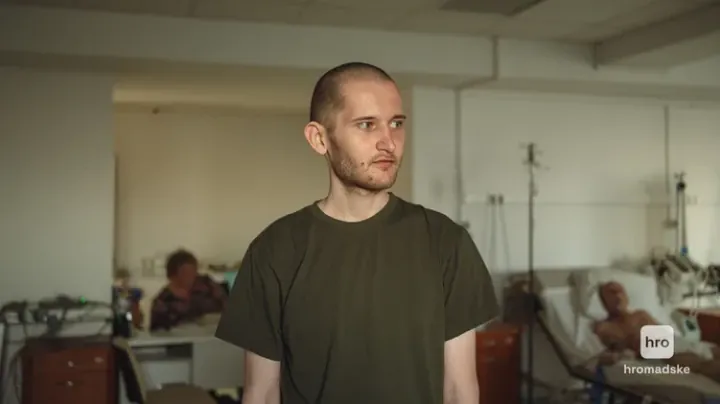
Yurii is now 23 years old. After spending time in intensive care, he will continue his recovery at a rehabilitation center. Later he will sort out documents issues and reunite with loved ones. He’s also considering returning to university to resume his Chinese studies and hopes to travel again.
"Do you want to forget about your time in captivity?" hromadske journalist asked him.
"Absolutely not. Why would I? I learned valuable lessons from it. For example, you need to be mindful not only of what you say but also of what you think," Yurii responded.
Meanwhile, Milana received recognition from the Coordination Headquarters for her dedication in locating prisoners. Like Yurii, she is adjusting to a new reality: "Now I wake up every day thinking, 'Yurii is home!' I can’t even put into words what that feels like."

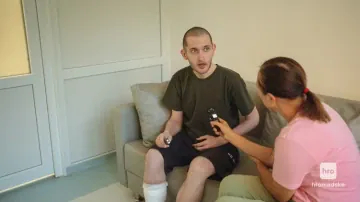
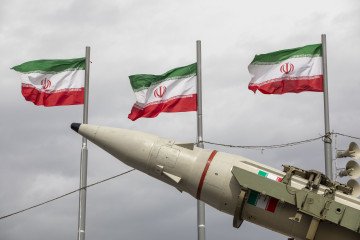
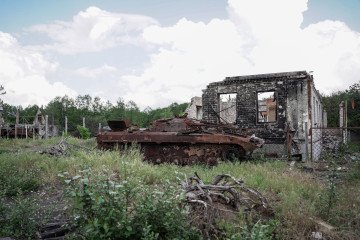
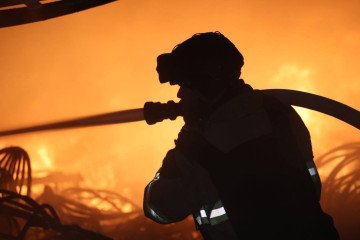
-111f0e5095e02c02446ffed57bfb0ab1.jpeg)
